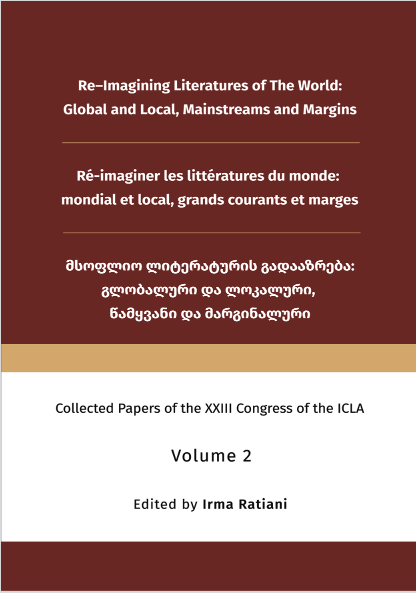Conflicting Memories and Families in Conflict: Identity and Otherness in Contemporary Basque Literature
Main Article Content
ანოტაცია
Contemporary Basque literature shows a clear interest in our conflictive past. A growing number of works deal with the Spanish Civil War, Franco's dictatorship, or all that we commonly call the ‘Basque conflict’. Although there is a variety of literary perspectives and approaches, we can observe some recurring motifs that may be especially significant for understanding the negotiations on memory and identity in the Basque Country. Specifically, I will analyze some narratives in which that Other who can be represented as a perpetrator or as a political opponent (a Falangist, a terrorist), also appears as a relative, as a member who destabilizes the family genealogy, and provokes an identity crisis, both individual and collective. From this perspective, I will analyze novels such as Atertu arte itxaron (Agirre, 2015, translated into Spanish as Los turistas desganados) or Soinujo-learen semea (Atxaga, 2003, translated into English as The Accordionist's son, 2008), but also chronicles such as Gurea falangista zen (Barandiaran, 2021, ['Ours was Falangist']). This analysis will lead us to reflect on the problematic (de)construction of Basque identity in the present, and on the main role played by our conflicting memories in this process.
